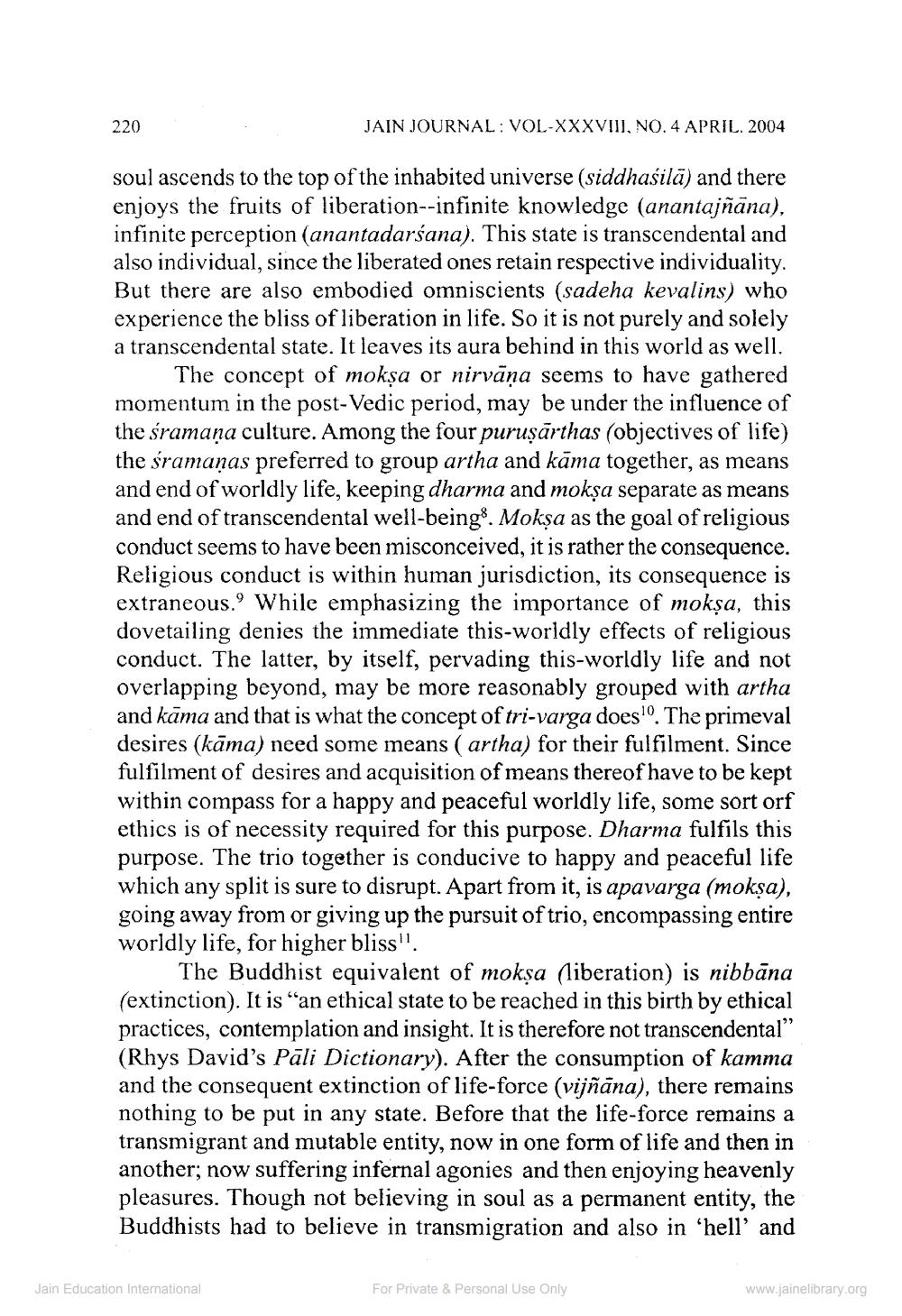________________
220
JAIN JOURNAL: VOL-XXXVIIJ, NO.4 APRIL 2004
soul ascends to the top of the inhabited universe (siddhasilā) and there enjoys the fruits of liberation--infinite knowledge (anantajñana), infinite perception (anantadarśana). This state is transcendental and also individual, since the liberated ones retain respective individuality. But there are also embodied omniscients (sadeha kevalins) who experience the bliss of liberation in life. So it is not purely and solely a transcendental state. It leaves its aura behind in this world as well,
The concept of mokṣa or nirvāņa seems to have gathered momentum in the post-Vedic period, may be under the influence of the śramana culture. Among the four puruşārthas (objectives of life) the sramanas preferred to group artha and kāma together, as means and end of worldly life, keeping dharma and mokșa separate as means and end of transcendental well-being8. Mokșa as the goal of religious conduct seems to have been misconceived, it is rather the consequence. Religious conduct is within human jurisdiction, its consequence is extraneous. While emphasizing the importance of mokşa, this dovetailing denies the immediate this-worldly effects of religious conduct. The latter, by itself, pervading this-worldly life and not overlapping beyond, may be more reasonably grouped with artha and kāma and that is what the concept of tri-varga does. The primeval desires (kāma) need some means (artha) for their fulfilment. Since fulfilment of desires and acquisition of means thereof have to be kept within compass for a happy and peaceful worldly life, some sort orf ethics is of necessity required for this purpose. Dharma fulfils this purpose. The trio together is conducive to happy and peaceful life which any split is sure to disrupt. Apart from it, is apavarga (mokşa), going away from or giving up the pursuit of trio, encompassing entire worldly life, for higher bliss!
The Buddhist equivalent of mokṣa (liberation) is nibbāna (extinction). It is “an ethical state to be reached in this birth by ethical practices, contemplation and insight. It is therefore not transcendental" (Rhys David's Pāli Dictionary). After the consumption of kamma and the consequent extinction of life-force (vijñāna), there remains nothing to be put in any state. Before that the life-force remains a transmigrant and mutable entity, now in one form of life and then in another; now suffering infernal agonies and then enjoying heavenly pleasures. Though not believing in soul as a permanent entity, the Buddhists had to believe in transmigration and also in 'hell' and
Jain Education International
For Private & Personal Use Only
www.jainelibrary.org




